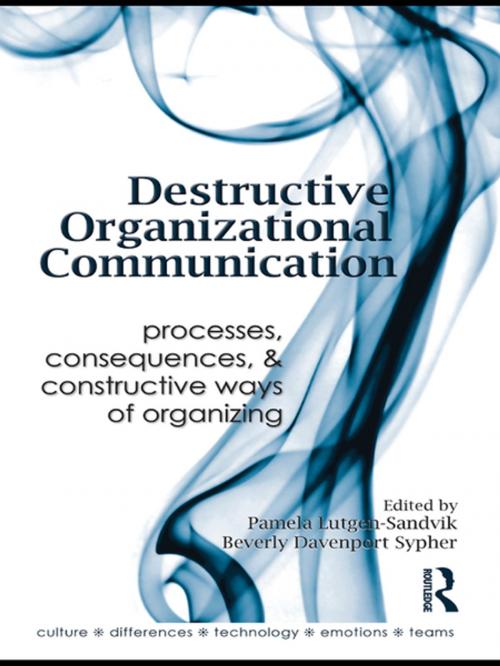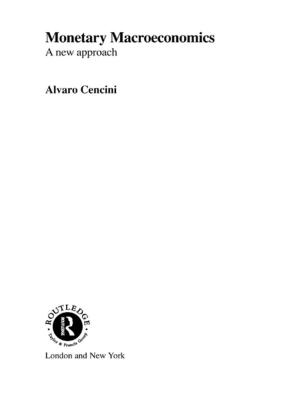Destructive Organizational Communication
Processes, Consequences, and Constructive Ways of Organizing
Nonfiction, Health & Well Being, Psychology, Occupational & Industrial Psychology, Reference & Language, Language Arts, Communication, Business & Finance, Business Reference, Business Communication| Author: | ISBN: | 9781135856397 | |
| Publisher: | Taylor and Francis | Publication: | March 17, 2010 |
| Imprint: | Routledge | Language: | English |
| Author: | |
| ISBN: | 9781135856397 |
| Publisher: | Taylor and Francis |
| Publication: | March 17, 2010 |
| Imprint: | Routledge |
| Language: | English |
This volume provides an in-depth consideration of destructive communication in organizations -- including workplace bullying, racism, stress, and harassment. It brings together communication scholars from theoretical and applied perspectives to assess current understandings, explore ways to integrate theory and practice, identify areas for change, and outline a research agenda for the coming decade. Each chapter examines a specific aspect of destructive organizational communication, reviews existing theory and research about that communicative form or ideology, suggests fruitful possibilities for application, and suggests key areas for further study. As such, the book opens a dialogue among communication scholars that explores destructive communication in organizations and addresses the following key components:
- the central issues and concerns regarding destructive organizational communication,
- current scholarly contributions to both applied and theoretical understanding of these issues,
- approaches to integrate applied/experienced and theoretical/conceptual perspectives in ways that inform one another and improve organizational considerations for varied stakeholders, and
- suggestions for a future research agenda for those interested in ameliorating the destructive side of organizational communication.
Overall, the collection provides a basic understanding of the different types of destructive communication in organizations, the processes through which these interactions occur, the consequences to individuals and organizations, and the potential for organizing in more constructive, civil ways. This volume will be an excellent resource for scholars and researcher studying organizational communication, and graduate and advanced undergraduate students in organizational communication. It will also resonate with managers dealing with hostile workplaces, and organizational members trying to understand their current experiences. The book will serve as an excellent textbook for advanced undergraduate and graduate courses in organizational communication.
This volume provides an in-depth consideration of destructive communication in organizations -- including workplace bullying, racism, stress, and harassment. It brings together communication scholars from theoretical and applied perspectives to assess current understandings, explore ways to integrate theory and practice, identify areas for change, and outline a research agenda for the coming decade. Each chapter examines a specific aspect of destructive organizational communication, reviews existing theory and research about that communicative form or ideology, suggests fruitful possibilities for application, and suggests key areas for further study. As such, the book opens a dialogue among communication scholars that explores destructive communication in organizations and addresses the following key components:
- the central issues and concerns regarding destructive organizational communication,
- current scholarly contributions to both applied and theoretical understanding of these issues,
- approaches to integrate applied/experienced and theoretical/conceptual perspectives in ways that inform one another and improve organizational considerations for varied stakeholders, and
- suggestions for a future research agenda for those interested in ameliorating the destructive side of organizational communication.
Overall, the collection provides a basic understanding of the different types of destructive communication in organizations, the processes through which these interactions occur, the consequences to individuals and organizations, and the potential for organizing in more constructive, civil ways. This volume will be an excellent resource for scholars and researcher studying organizational communication, and graduate and advanced undergraduate students in organizational communication. It will also resonate with managers dealing with hostile workplaces, and organizational members trying to understand their current experiences. The book will serve as an excellent textbook for advanced undergraduate and graduate courses in organizational communication.















